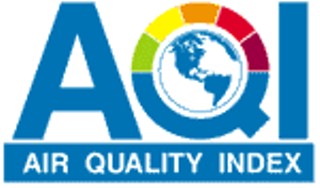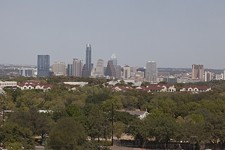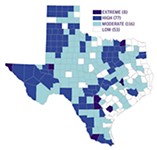Don’t Breath Today or Tomorrow
Ozone Watch Level Orange Alerts
By Katherine Gregor, 2:03PM, Fri. May 28, 2010

The Clean Air Force of Central Texas has issued an alert – today is a Level Orange five-county Ozone Watch Day. And Saturday is, too. Why should you care? On Ozone Watch and Alert days, the local air is so bad it can make you sick. Kiddos, asthmatics, and sensitive folks should stay inside.
On Ozone Watch days, the elderly, young children, and individuals with chronic lung conditions should avoid smog exposure by minimizing exertion outdoors. To protect their health, children and sensitive adults should limit or eliminate outdoor play and sports. (Sorry kids, we've polluted your planet.)
When smog levels are forecasted to be high, sign up to get automatic e-mail alerts through the EPA’s Air Quality Forecasts and Alert program. For more information on ground-level ozone locally, visit www.cleanairforce.org. Smog gets worse in the summer heat, so it’s ozone season.
The Environmental Protection Agency also recommends taking precautions to avoid both short-term impacts – asthma, emphysema, and other respiratory disease – and cumulative exposures that can cause cancer.
Want better air? Change your ways to help clean up air pollution and reduce greenhouse gas emissions too. This from the Clean Air Force of Central Texas
The Environmental Protection Agency makes similar recommendations. States the EPA:Actions to Reduce Smog and Emissions
• Limit Your Driving on Ozone Watch Days
Take your lunch to work. Combine errands or share a ride. Visit River Cities Rideshare at www.rivercitiesrideshare.com to find someone to carpool with.
• Ride the Bus
Click here for bus routes.
• Avoid Idling
Skip the drive-thru lane and park and go inside instead. For information on heavy-duty vehicle idling restrictions, please see www.engineoff.org.
• Postpone Refueling Your Vehicle Until After 6 p.m Also, don't top off the tank to prevent the escape of emissions.
• Postpone Mowing Your Lawn and Using Gas-Powered Equipment Until After 6 p.m.
• Tune Up Your Vehicle
A well-maintained car operates efficiently and cleanly.
Vehicles are a primary source of the pollutants that make smog. Fossil fuel burning at electric generating stations, particularly on hot days, also generates significant smog-forming pollution. Other industries and smaller sources, such as gasoline stations and print shops, also contribute to smog. In addition, household products like paints and cleaners, as well as gasoline-powered lawn and garden equipment, contribute to smog formation.EPA asks everyone to help reduce air pollution – and greenhouse gas emissions, too – by taking the following steps:
• Use public transportation or walk whenever possible
• Combine errands and car-pool to reduce driving time and mileage
• Use less electricity by turning air conditioning to a higher temperature setting, and turning off lights, TVs and computers when they are not being used
• Avoid using small gasoline-powered engines, such as lawn mowers, chain saws and leaf blowers on unhealthy air days.
Got something to say on the subject? Send a letter to the editor.
A note to readers: Bold and uncensored, The Austin Chronicle has been Austin’s independent news source for over 40 years, expressing the community’s political and environmental concerns and supporting its active cultural scene. Now more than ever, we need your support to continue supplying Austin with independent, free press. If real news is important to you, please consider making a donation of $5, $10 or whatever you can afford, to help keep our journalism on stands.









